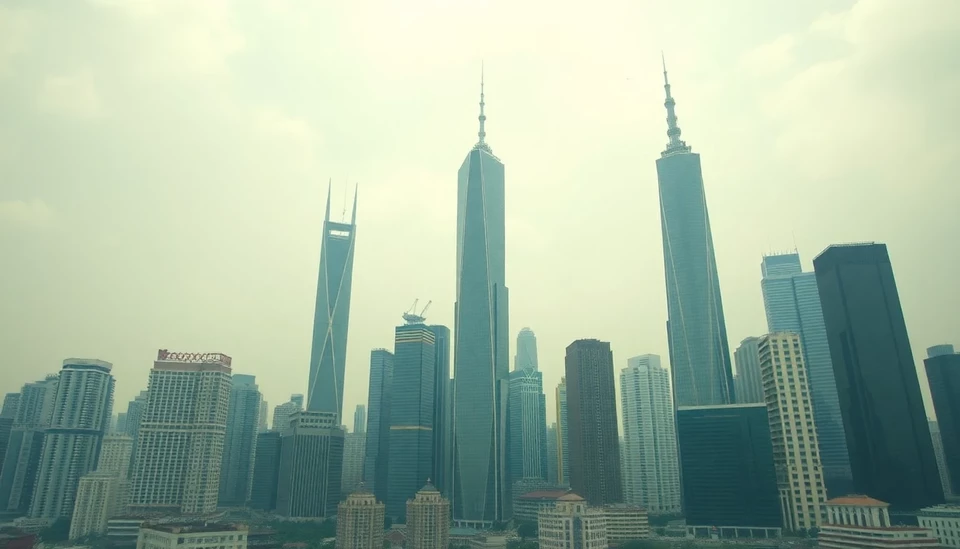
In a remarkable turn of events, the skyline in several Chinese cities is reflecting a shocking reality: many towering skyscrapers stand empty, signaling a troubling oversupply in the property market. This precarious situation has ignited fierce competition among developers, leading to drastic price cuts in an attempt to attract potential buyers and tenants.
Recent trends indicate that the real estate sector in China, once a cornerstone of economic growth, now grapples with the aftermath of rapid expansion, compounded by shifts in buyer sentiment and economic uncertainties. The situation has escalated to the point where major real estate developers in cities like Beijing, Shanghai, and Guangzhou are slashing property prices by as much as 20% in a desperate bid to fill vacant spaces.
Market analysts have noted that this struggle for survival among developers comes in the wake of reduced consumer confidence. Following years of aggressive building projects, the sudden realization of an oversaturated market has left numerous high-rise buildings empty. Reports suggest that in some urban areas, as much as 30% of residential units remain unoccupied, exacerbated by a slowing economy and stringent buying regulations.
In an effort to navigate these choppy waters, developers are resorting to various strategies. Discounts, promotions, and attractive financing options are becoming commonplace. Developers are not only slashing prices but also enhancing their offerings with bespoke amenities and services, hoping to turn the tide in their favor. The race to draw buyers has seen some companies reduce prices significantly, leading to a heated price war that is reminiscent of past boom-and-bust cycles.
However, such aggressive pricing strategies come with their own risks. Analysts warn that diminishing prices could lead to long-term damage to the market's reputation, further eroding consumers' trust. Buyers may begin to hesitate, anticipating even lower prices in the future, thus prolonging the stagnation of the market. This could create a vicious cycle that may prolong the current downturn.
The government, aware of the ramifications of such a crisis, has begun to step in cautiously. Regulatory measures aimed at stabilizing the property sector are being discussed, alongside initiatives to encourage purchases through special financing schemes and easing of restrictions for first-time homebuyers. These moves are seen as essential to restoring confidence in the market, though observers remain skeptical about how effective they will be in stemming the tide of declining prices.
The unfolding developments in the Chinese property sector serve as a stark reminder of the fragility of markets shaped by rapid growth. As developers react to market pressures, cityscapes filled with empty buildings showcase a significant economic challenge that not only impacts real estate but also has broader implications for the economy as a whole.
As this saga continues, all eyes will be on how developers adapt to these changing dynamics and whether the government can effectively intervene to stabilize the sector while restoring buyer confidence.
#ChineseRealEstate #SkyscraperCrisis #PriceWar #PropertyMarket #EconomicChallenges #DeveloperStrategies #MarketTrends
Author: John Harris




